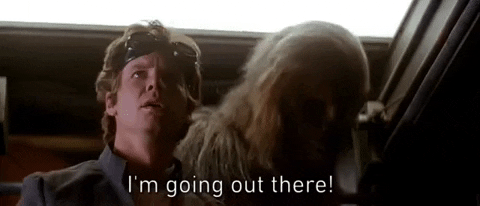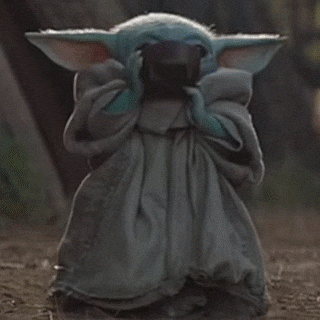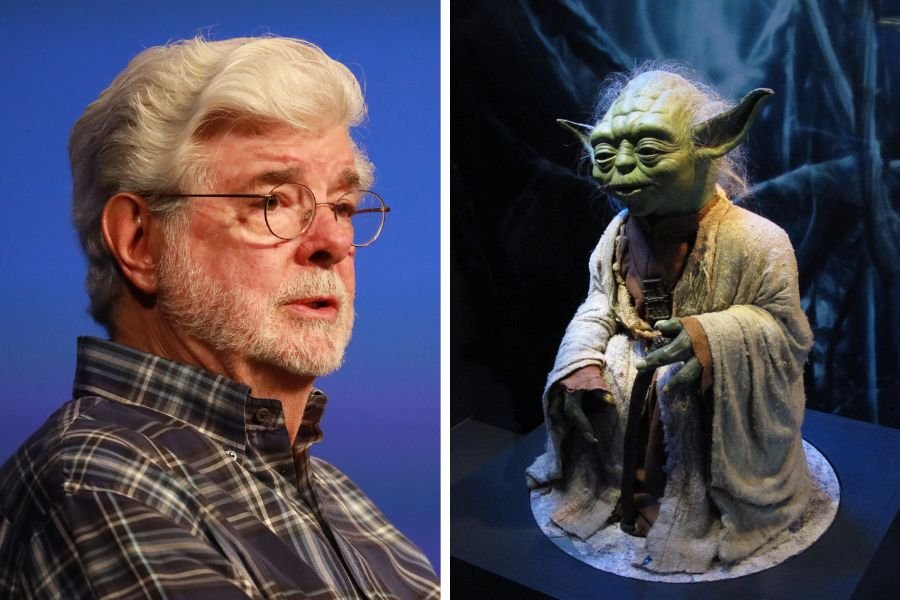Parenting is certainly an interesting gig at times, but most parents likely never thought Yoda would be modeling child-rearing behavior. The little green guy that speaks in what sometimes feels like riddles was written like that purposely according to George Lucas—and it’s something parents might want to take note of. Lucas, the man behind the Star Wars franchise was recently interviewed at the TCM Classic Film Festival’s screening of The Empire Strikes Back for the film’s 45th anniversary.
Longtime TCM host Ben Mankiewicz was the moderator of the event and finally got to ask a question that has been on people’s minds for years: Why on earth did that little green Jedi master talk backwards?

The short story is, because Lucas wanted him to. The longer version (that fans actually wanted to know) is that Yoda’s way of speaking is almost a Jedi move in itself. His speech is a psychological trick that can benefit parents who have children who struggle with listening—especially preteens.
Lucas explained, “Because if you speak regular English, people won’t listen that much. But if he had an accent, or it’s really hard to understand what he’s saying, they focus on what he’s saying. He was basically the philosopher of the movie.” He continued, “I had to figure out a way to get people to actually listen—especially 12-year-olds.”
This is a tactic that some parents have used whether knowingly or not—and there’s science behind it. For example, parents change their speech to a whisper when reprimanding their children in public settings to get their attention and correct unwanted behavior. Turns out this technique may also be beneficial inside the home as well.
According to The Wichita Eagle in 2008, “Wichita State audiology professor Ray Hull would say the children heard something unusual and irresistible: an adult they can understand. Because the trick to get children to listen to really hear and comprehend, whether they’re toddlers or high school students isn’t speaking up, Hull says. It’s slowing down. According to Hull, the average adult speaks at a rate of almost 170 words per minute. But the average 5- to 7- year-old processes speech at a rate of only 120 words per minute. The gap between what a child hears and what he or she understands can appear to parents and teachers as inattention, confusion or outright defiance.”

In 2013, the International Journal of Speech-Language Pathology researched the affects of rate of speech on comprehension abilities of typically developing school-aged children in Sweden. While the sample size was small, just 102 children, researchers were able to show that when children were spoken to in normal, slow, and fast rates of speech, the children were much more likely to comprehend the information given at the slow rate of speech.
Slowing things down is exactly what Mister Rogers did. According to Hull, the late children’s show host spoke at a rate of 124 words per minute, which seemed to be the key in captivating his young audience. But speaking slowly isn’t always enough. Parenting experts explain that parents should get down on the child’s level and make eye contact before speaking. For older kids, gaining their attention by calling their name, moving closer to them, or placing a hand on their shoulder before speaking slowly will aid in getting them to hear the words coming out of your mouth. These techniques also work for children that have auditory processing disorder according to Nemours Kids Health.

Of course, Yoda isn’t parenting real human children, but the way he speaks captures the attention of audience members young and old. But if you don’t want to slow down and speak backwards, speaking at a lower volume may also do the trick.
“If someone starts speaking really loud or yelling at you, your immediate response is usually fight or flight. You just want to get away from them. Our children are no different. So when we get louder, they listen less. On the other hand, the more softly a person speaks, the more closely everybody else listens to them. We want to hear what we might be missing out on! And unless your child has a genuine physical ailment that affects their ability to hear, they will respond in the same way,” parenting expert and author Dr Justin Coulson writes for Happy Families Australia.
Lucas likely didn’t set out to give some solid parenting advice when explaining why he made Yoda speak in such a strange manner, but surely there’s a parent out there who just may want to give this method a try.




























